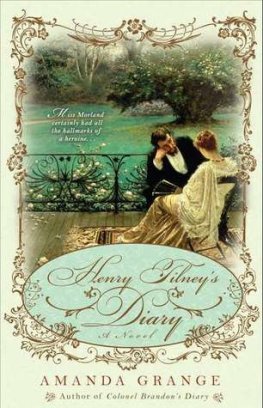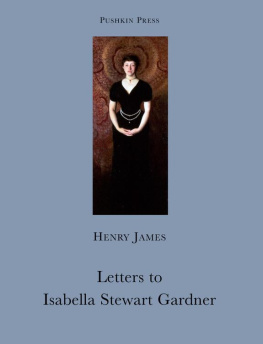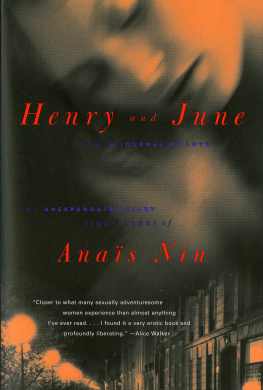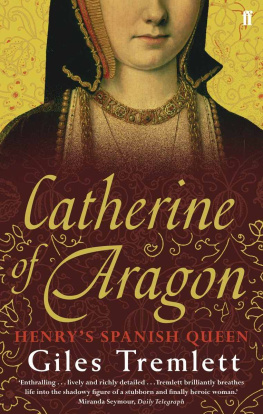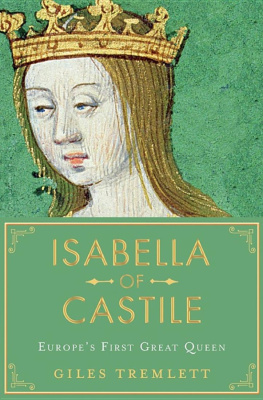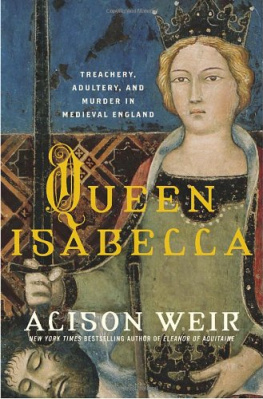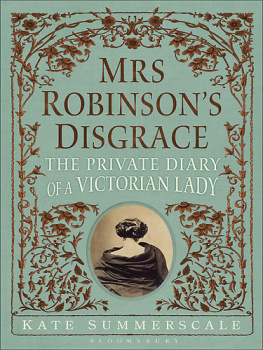Mrs. Robinsons Disgrace
The Private Diary of a Victorian Lady

In France in the late 1850s, Gustave Flaubert was prosecuted for corrupting public morals with Madame Bovary a novel considered too repulsive for publication in Britain. In England, the 1857 Matrimonial Causes Act made divorce for the first time a civil matter, affordable to the middle classes. And the godless ideas Charles Darwin was formulating about natural selection, published to accusations of heresy in 1859, would further undermine the religious and moral tenets of Victorian England.
The story of Isabella Robinsons fall from grace unfolds against this backdrop of dangerously shifting social mores, in which cherished ideas about marriage and female sexuality were coming increasingly under threat. For a society dealing with such radical notions by clinging ever more tightly to its traditional values, Mrs Robinsons diary and the lawless ideas about love expressed in it were nothing short of scandal.
A compelling story of romance and fidelity, insanity, fantasy and the boundaries of privacy, Mrs Robinsons Disgrace brings brilliantly to life a complex, frustrated Victorian wife, longing for passion and learning, companionship and love in an unsettled world which as yet made no allowance for her.
The Queen of Whale Cay
The Suspicions of Mr. Whicher

Copyright 2012 by Kate Summerscale
Title page illustration, A Wife by Sir John Everett Millais, Private Collection/The Bridgeman Art Library
Family trees by Phillip Beresford
All rights reserved. No part of this book may be used or reproduced in any manner whatsoever without written permission from the publisher except in the case of brief quotations embodied in critical articles or reviews. For information address Bloomsbury USA, 175 Fifth Avenue, New York, NY 10010.
Published by Bloomsbury USA, New York
www.bloomsburyusa.com
LIBRARY OF CONGRESS CATALOGING-IN-PUBLICATION DATA HAS BEEN APPLIED FOR.
eISBN 978-0-8027-4368-8
U.S. edition published in 2012
This electronic edition published in June 2012
In memory of my grandmothers, Nelle and Doris,
and my great-aunt Phyllis
The wife sat thoughtfully turning over
A book inscribed with the school-girls name;
A tear one tear fell hot on the cover
She quickly closed when her husband came.
He came, and he went away it was nothing
With cold calm words on either side;
But, just at the sound of the room-door shutting,
A dreadful door in her soul stood wide.
Love, she had read of in sweet romances,
Love that could sorrow, but never fail,
Built her own palace of noble fancies,
All the wide world a fairy tale.
Bleak and bitter, utterly doleful,
Spreads to this woman her map of life;
Hour after hour she looks in her soul, full
Of deep dismay and turbulent strife.
Face in both hands, she knelt on the carpet;
The black cloud loosend, the storm-rain fell:
Oh! Life has so much to wilder and warp it,
One poor hearts day what poet could tell?
A Wife by A [William Allingham],
in Once a Week, 7 January 1860
Contents
THE ROBINSONS
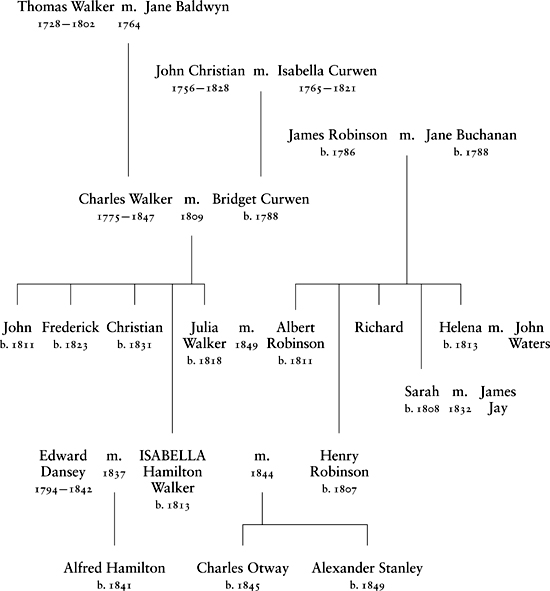
THE LANES

LIST OF LAWYERS IN THE
ROBINSON DIVORCE TRIAL
THE JUDGES
Sir Alexander Cockburn, Bt, Chief Justice of the Court of Common Pleas
Sir Cresswell Cresswell, Judge Ordinary of the Court of Divorce and Matrimonial Causes
Sir William Wightman
THE BARRISTERS
For Henry Robinson
Montagu Chambers QC
Jesse Addams QC, DCL
John Karslake
For Isabella Robinson
Robert Phillimore QC, DCL
John Duke Coleridge
For Edward Lane
William Forsyth QC
William Bovill QC
James Deane QC, DCL
In London in the summer of 1858, a court of law began to grant divorces to the English middle classes. Until then, a marriage could be dissolved only by an individual Act of Parliament, at a cost prohibitive to almost all of the population. The new Court of Divorce and Matrimonial Causes was able to sever the marital bond far more cheaply and quickly. To win a divorce was still difficult a man had to prove that his wife had committed adultery, a woman that her husband was guilty of two matrimonial offences but the petitioners came in their hundreds, bringing their stories of betrayal and strife, of brutish men and, especially, of wanton women.
The judges were presented with a singular case on Monday 14 June, a month after they had heard their first divorce suit. Henry Oliver Robinson, a civil engineer, was petitioning for the dissolution of his marriage on the grounds that his wife, Isabella, had committed adultery, and he submitted as evidence a diary in her hand. Over the five days of the trial, thousands of Isabella Robinsons secret words were read out to the court, and the newspapers printed almost every one. Her journal was detailed, sensual, alternately anguished and euphoric, more godless and abandoned than anything in contemporary English fiction. In spirit, it resembled Gustave Flauberts Madame Bovary, which had been published in France in 1857 after a notorious obscenity trial, but was considered too scandalous to be translated into English until the 1880s. The diary, like Flauberts novel, portrayed a new and disturbing figure: a middle-class wife who was restless, unhappy, avid for arousal. To the astonishment of those who read the extracts in the press, Mrs Robinson seemed to have invited, and lovingly documented, her own disgrace.
BOOK I
THIS SECRET FRIEND

Why have I gone back to this secret friend of my wretchedest and wickedest hours? Because I am more friendless than ever; because I am more lonely than ever, though my husband is sitting writing in the next room to me. My misery is a womans misery, and it will speak here, rather than nowhere; to my second self, in this book, if I have no one else to hear me
From Wilkie Collinss Armadale (1866)
1
HERE I MAY GAZE AND DREAM
Edinburgh, 185052
In the evening of 15 November 1850, a mild Friday night, Isabella Robinson set out for a party near her house in Edinburgh. Her carriage bumped across the wide cobbled avenues of the Georgian New Town and drew up in a circle of grand sandstone houses lit by street lamps. She descended from the cab and mounted the steps to 8 Royal Circus, its huge door glowing with brass and topped with a bright rectangle of glass. This was the residence of Lady Drysdale, a rich and well-connected widow to whom Isabella and her husband had been commended when they moved to Edinburgh that autumn.
Elizabeth Drysdale was a renowned hostess, vivacious, generous and strong-willed, and her soires attracted inventive, progressive types: novelists such as Charles Dickens, who had attended one of the Drysdales parties in 1841; physicians such as the obstetrician and pioneer anaesthetist James Young Simpson; publishers such as Robert Chambers, the founder of


